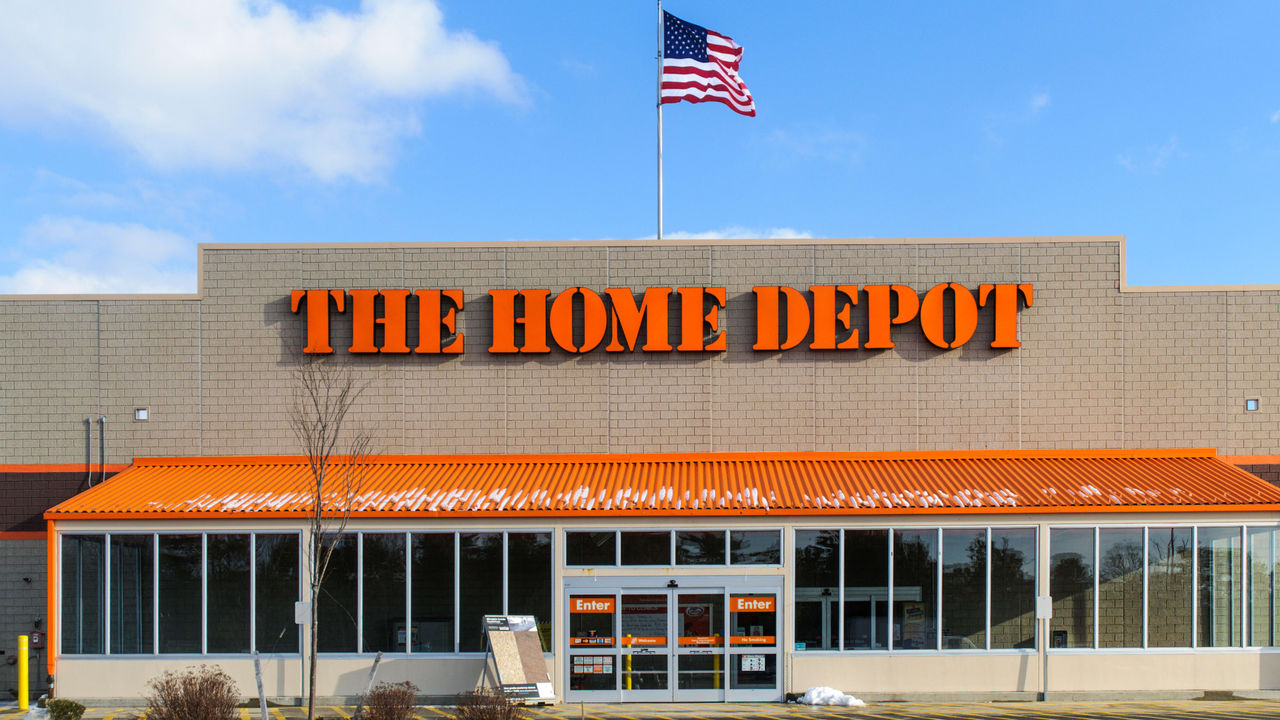A National Labor Relations Board (NLRB) field office issued a complaint against Home Depot asserting that the home improvement chain discriminated against a Minneapolis employee who wore a "Black Lives Matter" slogan on his apron and raised awareness about racial harassment.
Although the Minneapolis store had a lawful dress code and apron policy, the complaint said, the store violated the National Labor Relations Act (NLRA) by selectively enforcing the policy and threatening employees who discussed racial-harassment issues.
"The employee's activity around these issues, including his refusal to remove the slogan, ultimately led to his suspension and constructive discharge," the NLRB said in a press statement.
Home Depot's policies cover about 2,200 stores in North America, so the NLRB is seeking a nationwide notice-posting remedy to advise employees at U.S. stores about their rights.
Home Depot spokesperson Sara Gorman said the NLRB's press statement misrepresented the relevant facts. "The Home Depot does not tolerate workplace harassment of any kind and takes all reports of discrimination or harassment seriously, as we did in this case," she said. "We disagree with the characterization of this situation and look forward to sharing the facts during the NLRB's process."
We've rounded up articles and resources from SHRM Online and other trusted media outlets on the news.
Collective Action
The NLRA gives employees the right to participate in collective action regarding workplace matters, even if their worksite isn't unionized. "Issues of racial harassment directly impact the working conditions of employees," said NLRB Regional Director Jennifer Hadsall, who filed the complaint. "The NLRA protects employees' rights to raise these issues with the goal of improving their working conditions." Unless the complaint is settled, the issue will be heard by an NLRB administrative law judge, and the ruling can be appealed to the agency's board members in Washington, D.C.
Dress Code
Under Home Depot's dress code, employees are not allowed to display "causes or political messages unrelated to workplace matters" on their aprons or other work attire, according to the complaint. Although the dress code is lawful, Hadsall claimed that the company violated the NLRA by enforcing the dress code against an employee who wore a Black Lives Matter logo to raise awareness of racial discrimination and harassment issues at the Minneapolis store. The complaint did not provide details about the employee's discrimination allegations.
Protected Activity
Section 7 of the NLRA gives workers the right to engage in concerted activities for their mutual benefit and to discuss wages and working conditions. According to the complaint, the employee "engaged in concerted activities for the purposes of mutual aid and protection related to racial policies and practices at the New Brighton Facility; this included displaying the lettering 'BLM' on [his] apron; writing e-mails; engaging in various conversations with co-workers, supervisors and managers about subjects such as ongoing discrimination and harassment; and/or engaging in other BLM-related protected concerted activity."
Responding to Social and Political Expression at Work
Employees come to work to perform a job, but they also bring their social, political and personal ideologies, which they may choose to express in conversations with co-workers, on their clothing or in other ways. Although the First Amendment does not provide on-the-job protection for employees who work for private businesses, employers should still consult state laws, which may provide some protection for political expression and off-duty conduct. Additionally, the NLRA generally protects employee speech when two or more employees discuss wages and working conditions. The key for employers is to be consistent. Attorneys say workplace policies—including dress code policies—should be clear, up-to-date and fairly applied.
Supporting Black Employees
Racial unrest, COVID-19 and the recession will have a long-term impact on Black Americans. Following the killing of George Floyd, a resurgence of the Black Lives Matter movement brought hope to some by sparking what many civil rights advocates consider the most momentous national conversation on racial justice and equality since the 1960s. Here are seven ways employers can support Black employees.
[Want to learn more about workplace compliance? Join us at the SHRM Annual Conference & Expo 2021, taking place Sept. 9-12 in Las Vegas and virtually.]
Was this resource helpful?




